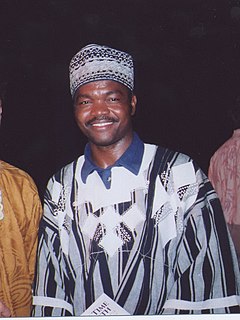A Quote by Gao Xingjian
The human need for language is not simply for the transmission of meaning, it is at the same time listening to and affirming a person's existence.
Related Quotes
I would agree with that. But when I write lyrics, personally I don't care if the person who is listening to it understands what I'm saying or not; and I write them like that specifically. You know, I have my views; I don't feel the need to have people have the same views as me. So if they find the meaning in the songs and it's the same meaning as the one I intended then fine and dandy and if they don't, they don't.
The majority of the people of the world today are unsane, not insane, unsane meaning having been exposed to methods of evaluation that have long rendered obsolete, our language in the future will change to a saner language where we have no argument in it, 'can there be such a language?' there is, when engineers talk to each other, it's not subject to interpretation, they use math, they use descriptive systems, if I interpreted what another engineer said in the way I think he meant it: you couldn't build bridges, dams, power transmission lines. The language has to have meaning
I started my professional life as a philosopher of language and for several years took the orthodox line that meaning is an essentially linguistic phenomenon. Whether as a result of simply listening to everyday talk about meaning, or reading books of anthropology, sociology and art history, it dawned on me that there is nothing at all privileged or central about linguistic meaning.
Many young people today do not concern themselves with style. They think that what one says should be said simply and that is all. For me, style - which does not exclude simplicity, quite the opposite - is above all a way of saying three or four things in one. There is the simple sentence, with its immediate meaning, and then at the same time, below this immediate meaning, other meanings are organized. If one is not capable of giving language this plurality of meaning, then it is not worth the trouble to write.
A myth is a way of making sense in a senseless world. Myths are narrative patterns that give significance to our existence. Whether the meaning of existence is only what we put into life by our own individual fortitude, as Sartre would hold, or whether there is a meaning we need to discover, as Kierkegaard would state, the result is the same: myths are our way of finding this meaning and significance.
Literature is a form of language that breaks with the whole definition of genres as forms adapted to an order of representations, and becomes merely a manifestation of a language which has no other law than that of affirming in opposition to all other forms of discourse its own precipitous existence.
You write a book, it's out for however many years, and with the passing of time, you're not the same person. I'm not the same person I was when I wrote those books; I'm not even the same person I was when I started writing 'Beg.' I had many shifts spiritually, and one of them was in the use of language.
One of the reasons I love language is that concerning semiotics, language is an arbitrary sign system, which means the signs within it are free-floating, but we put them in a certain order to get them to have meaning for us. If we left them alone, they'd be like water, like the ocean. It would be just this vast field of free-floating matter or signs, so in this way, I think language and water have much in common. It's only us bringing grammar and syntax and diction and the human need for meaning that orders language, hierarchizes it.
To most humans, a universe consisting of particles banging about and doing what they have to do seems cold, barren, and without meaning. Meaning, however, is not something that floats in space, permeating the universe like a nebulous, mystical cloud. ... Meaning arises out of the working of the human mind, and therefore exists only in the human mind. The meaning of existence is whatever you want to make of it.
To demarcate [words in way that changes the meaning] is simply to speak a different language than everyone else. And I do not accept semantic games like that. [...] We need to use words as they are actually used and understood. We can correct errors and inconsistencies and make distinctions. But we can't try to foist an alien language on people.
The advantage of the gypsy language, even though I don't understand it that much, the language is perfect melody. So if you propose the movie the way I do, then the language is just one part of the melody. Orchestrating all inside, and the language is following the meaning of what they say, and it's never the same as written.







































